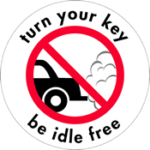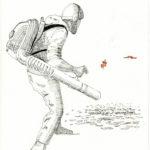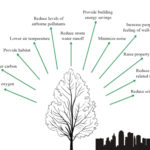
By Erika Roberts So many of us are delighted the kids are in school full-time this fall. I for one will be skipping them hand-in-hand down the sidewalk on their first day back, even if my first and fourth graders are dying of embarrassment. The only part of the academic year that I dread happens daily during arrival and dismissal: dozens upon dozens of vehicles running their engines while parked as the drivers wait to pick up or drop off students. With everything we have done to keep our children protected during a global pandemic, from remote learning to wearing [READ MORE]



